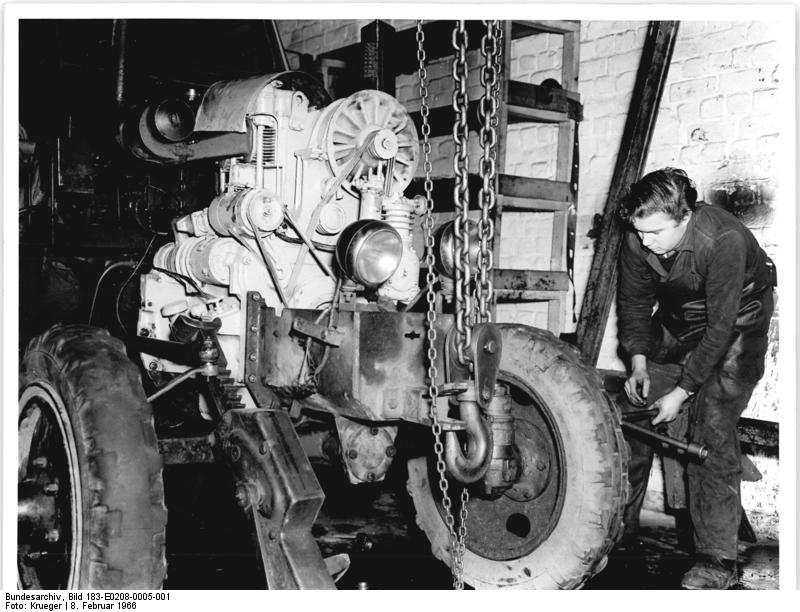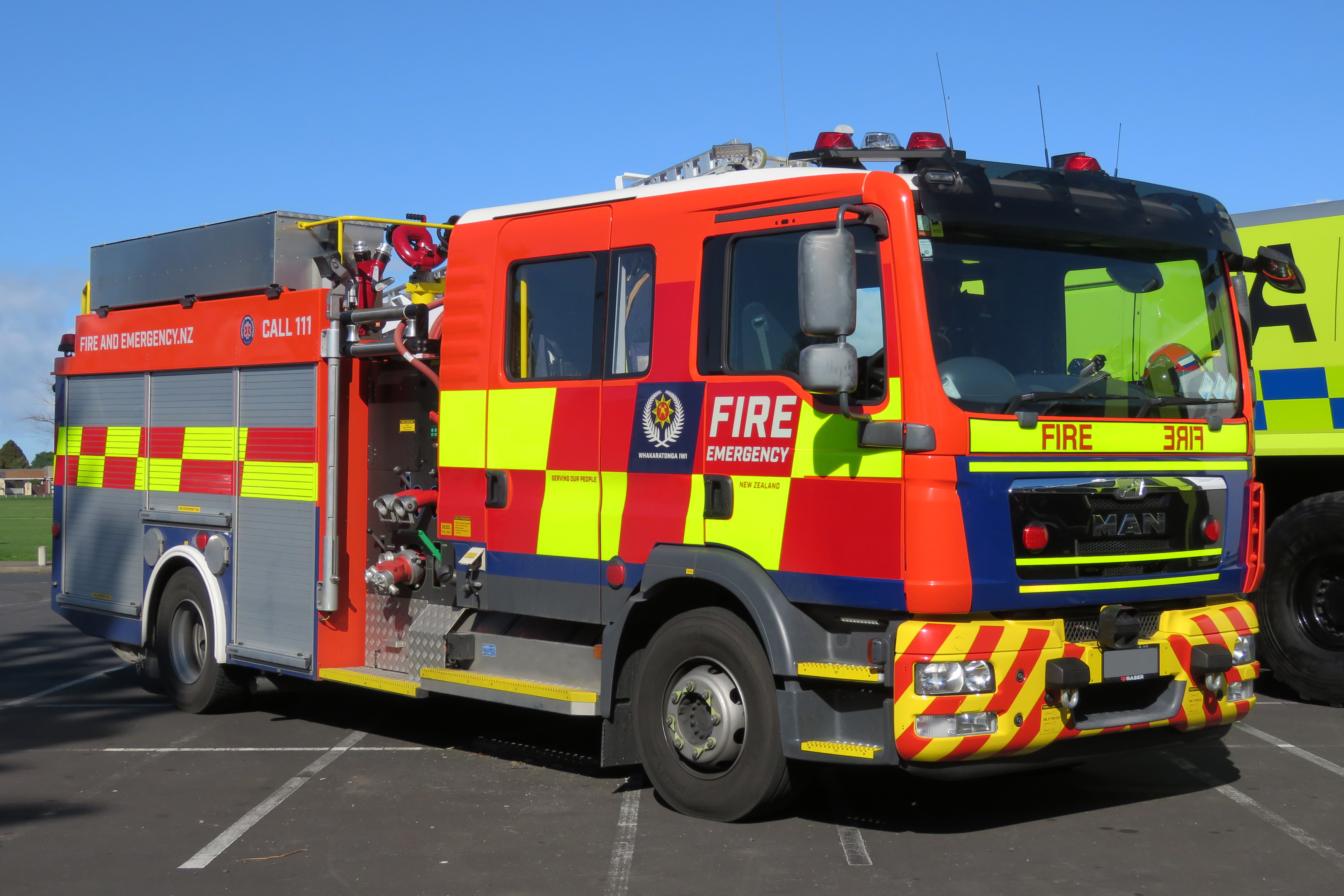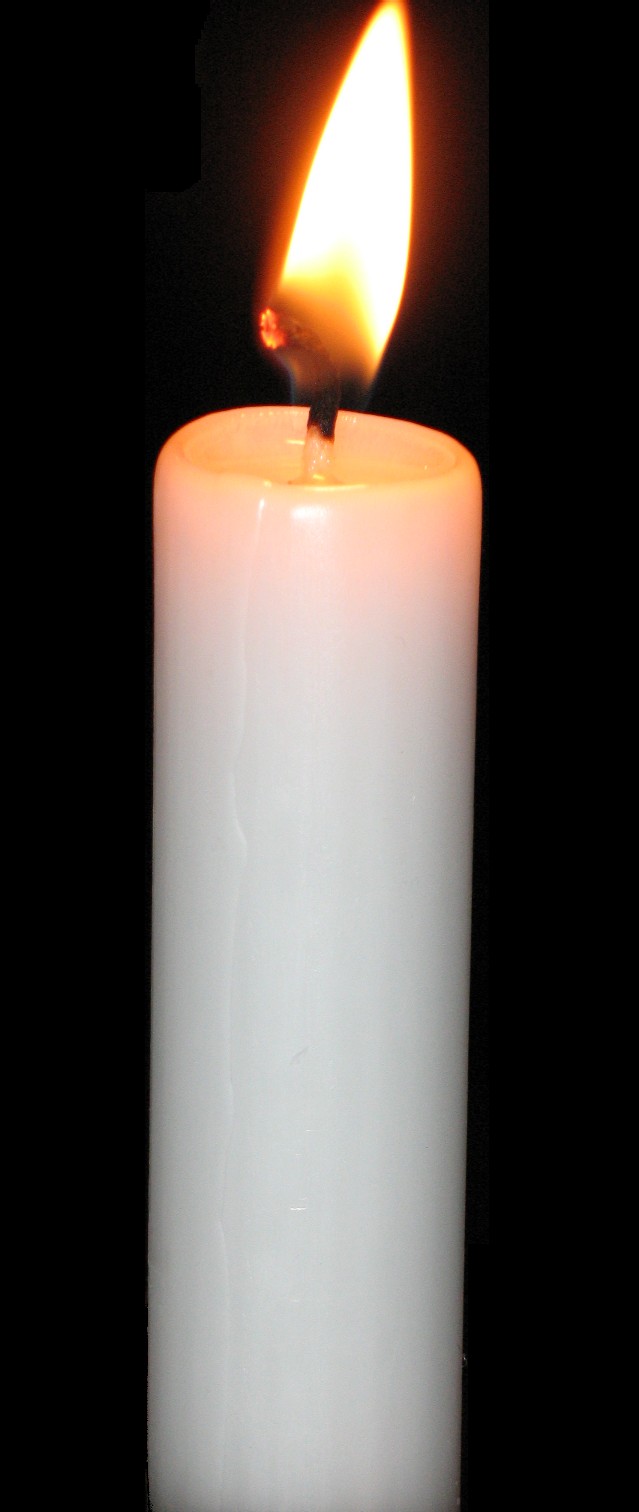|
Firemen's Pole
A fireman's pole (also called a firefighter's pole, sliding pole or fire pole) is a pole that firefighters slide down to quickly reach the ground floor of a fire station. This allows them to respond to an emergency call faster, as they arrive at the fire engine faster than by using a standard staircase. In the 1870s, answering an alarm, Chicago fireman George Reid decided to use the long-pole the company employed to lift horse's hay from the upper-loft to slide to the ground floor, arriving well ahead of the rest of the company. Company Captain David Kenyon of Engine Company 21 then successfully petitioned the department be allowed to install a pole through the floor of the loft sleeping space to create what became the standard set-up. Overview The firefighter's pole is found in multi-level fire stations, if the firefighters' living quarters are located upstairs. When they are dispatched to an emergency, the firefighters descend to the ground floor, put on their firefighti ... [...More Info...] [...Related Items...] OR: [Wikipedia] [Google] [Baidu] |
Pole Position May 2011
Pole may refer to: Astronomy *Celestial pole, the projection of the planet Earth's axis of rotation onto the celestial sphere; also applies to the axis of rotation of other planets *Pole star, a visible star that is approximately aligned with the Earth's axis of rotation *Orbital pole, the projection of the line perpendicular to planet Earth's orbit onto the celestial sphere; also applies to the orbit of other planets *Poles of astronomical bodies, concepts analogous to the Earth's geographic and magnetic poles on other planets and Solar System bodies Cylindrical objects A solid cylinder (geometry), cylindrical object or column with its length greater than its diameter, for example: *Asherah pole, a sacred tree or pole that stood near Canaanite religious locations to honor the Ugaritic mother-goddess Asherah, consort of El *Barber's pole, advertising the barber shop *Ceremonial pole or festival pole symbolizes a variety of concepts in several different cultures *Fireman's pole, wo ... [...More Info...] [...Related Items...] OR: [Wikipedia] [Google] [Baidu] |
Maintenance (technical)
The technical meaning of maintenance involves functional checks, servicing, repairing or replacing of necessary devices, equipment, machinery, building infrastructure, and supporting utilities in industrial, business, and residential installations. Over time, this has come to include multiple wordings that describe various cost-effective practices to keep equipment operational; these activities occur either before or after a failure. Definitions Maintenance functions can defined as maintenance, repair and overhaul (MRO), and MRO is also used for maintenance, repair and operations. Over time, the terminology of maintenance and MRO has begun to become standardized. The United States Department of Defense uses the following definitions:Federal Standard 1037C and from MIL-STD-188 and from the Department of Defense Dictionary of Military and Associated Terms * Any activity—such as tests, measurements, replacements, adjustments, and repairs—intended to retain or restore a fun ... [...More Info...] [...Related Items...] OR: [Wikipedia] [Google] [Baidu] |
The New Zealand Herald
''The New Zealand Herald'' is a daily newspaper published in Auckland, New Zealand, owned by New Zealand Media and Entertainment, and considered a newspaper of record for New Zealand. It has the largest newspaper circulation of all newspapers in New Zealand, peaking at over 200,000 copies in 2006, although circulation of the daily ''Herald'' had declined to 100,073 copies on average by September 2019. Its main circulation area is the Auckland region. It is also delivered to much of the upper North Island including Northland, Waikato and King Country. History ''The New Zealand Herald'' was founded by William Chisholm Wilson, and first published on 13 November 1863. Wilson had been a partner with John Williamson in the ''New Zealander'', but left to start a rival daily newspaper as he saw a business opportunity with Auckland's rapidly growing population. He had also split with Williamson because Wilson supported the war against the Māori (which the ''Herald'' termed "the ... [...More Info...] [...Related Items...] OR: [Wikipedia] [Google] [Baidu] |
Fire And Emergency New Zealand
Fire and Emergency New Zealand is New Zealand's main firefighting and emergency services body. Fire and Emergency was formally established on 1 July 2017, after the New Zealand Fire Service, the National Rural Fire Authority, and 38 rural fire districts and territorial authorities amalgamated to form one new organisation. It has nationwide responsibility for fire safety, firefighting, hazardous substance incident response, vehicle extrication and urban search and rescue. History New Zealand's first volunteer fire brigade was established in Auckland in 1854, with volunteer fire brigades established in Christchurch in 1860, Dunedin in 1861, and in Wellington in 1865. The Municipal Corporation Act 1867 allowed borough councils to establish fire brigades and appoint fire inspectors, starting the first paid fire brigades. The Fire Brigades Act 1906 set up local fire boards, and levied central government, local authorities and insurance companies to cover costs. During the summer of ... [...More Info...] [...Related Items...] OR: [Wikipedia] [Google] [Baidu] |
Time (magazine)
''Time'' (stylized in all caps) is an American news magazine based in New York City. For nearly a century, it was published Weekly newspaper, weekly, but starting in March 2020 it transitioned to every other week. It was first published in New York City on March 3, 1923, and for many years it was run by its influential co-founder, Henry Luce. A European edition (''Time Europe'', formerly known as ''Time Atlantic'') is published in London and also covers the Middle East, Africa, and, since 2003, Latin America. An Asian edition (''Time Asia'') is based in Hong Kong. The South Pacific edition, which covers Australia, New Zealand, and the Pacific Islands, is based in Sydney. Since 2018, ''Time'' has been published by Time USA, LLC, owned by Marc Benioff, who acquired it from Meredith Corporation. History ''Time'' has been based in New York City since its first issue published on March 3, 1923, by Briton Hadden and Henry Luce. It was the first weekly news magazine in the United St ... [...More Info...] [...Related Items...] OR: [Wikipedia] [Google] [Baidu] |
National Fire Protection Association
The National Fire Protection Association (NFPA) is an international nonprofit organization devoted to eliminating death, injury, property and economic loss due to fire, electrical and related hazards. As of 2018, the NFPA claims to have 50,000 members and 9,000 volunteers working with the organization through its 250 technical committees. History In 1895, a Committee on Automatic Sprinkler Protection was formed in Massachusetts by men affiliated with several fire insurance companies and a pipe manufacturer to develop a uniform standard for the design and installation of fire sprinkler systems. At the time, there were nine such standards in effect within of Boston, Massachusetts, and such diversity was causing great difficulties for plumbers working in the New England region. The next year, the committee published its initial report on a uniform standard, and went on to form the NFPA in late 1896. The committee's initial report evolved into NFPA 13, ''Standard for the Installat ... [...More Info...] [...Related Items...] OR: [Wikipedia] [Google] [Baidu] |
Friction
Friction is the force resisting the relative motion of solid surfaces, fluid layers, and material elements sliding against each other. There are several types of friction: *Dry friction is a force that opposes the relative lateral motion of two solid surfaces in contact. Dry friction is subdivided into ''static friction'' ("stiction") between non-moving surfaces, and ''kinetic friction'' between moving surfaces. With the exception of atomic or molecular friction, dry friction generally arises from the interaction of surface features, known as asperities (see Figure 1). *Fluid friction describes the friction between layers of a viscous fluid that are moving relative to each other. *Lubricated friction is a case of fluid friction where a lubricant fluid separates two solid surfaces. *Skin friction is a component of drag, the force resisting the motion of a fluid across the surface of a body. *Internal friction is the force resisting motion between the elements making up a so ... [...More Info...] [...Related Items...] OR: [Wikipedia] [Google] [Baidu] |
Friction Burn
A friction burn is a form of abrasion caused by the friction of skin rubbing against a surface. A friction burn may also be referred to as skinning, chafing, or a term named for the surface causing the burn such as rope burn, carpet burn or rug burn. Because friction generates heat, extreme cases of chafing may result in genuine burning of the outer layers of skin. The dermal papillae may be exposed after top layers of the epidermis (stratum corneum, stratum granulosum, stratum spinosum and stratum basale) have been removed. This is often uncomfortable and even painful, but rarely results in bleeding. A person's own skin (or the skin of another person) may be sufficient to act as an abrasive surface to cause friction burn. More commonly, friction with abrasive surfaces, including clothing, carpet, or rope, can lead to a friction burn. Common places at which skin-to-skin chafing can occur are between the thighs and under the armpits. Friction burns are very common with cloth ... [...More Info...] [...Related Items...] OR: [Wikipedia] [Google] [Baidu] |
Worcester Fire Department
The Worcester Fire Department (WFD) provides fire protection and emergency medical services to the city of Worcester, Massachusetts. The department serves an area of with a population of 183,000 residents. Stations and Apparatus Below is a complete listing of all WFD fire station locations and fire companies in the city of Worcester according to District. The Southbridge, Grove Street and Franklin Fire Stations have 2 Engine Companies. Ladder 2 and Ladder 5 are Tiller Ladders. Ladder 3 and Ladder 7 are Tower Ladder Trucks. Ladders 4, 1, and 6 are Regular Aerial trucks. Disbanded Fire Companies Throughout the history of the Worcester Fire Department, several fire companies have been disbanded. * Engine 1 - Central St. & Major Taylor Blvd. - Disbanded 2007 * Engine 10 - 424 Park Ave. - Disbanded 2007 * Engine 14 - Cambridge St. & McKeon Rd. - Disbanded 1991 Notable incidents Worcester Cold Storage and Warehouse fire On December 3, 1999, six firefighters were killed at the Wo ... [...More Info...] [...Related Items...] OR: [Wikipedia] [Google] [Baidu] |
Brass
Brass is an alloy of copper (Cu) and zinc (Zn), in proportions which can be varied to achieve different mechanical, electrical, and chemical properties. It is a substitutional alloy: atoms of the two constituents may replace each other within the same crystal structure. Brass is similar to bronze, another copper alloy, that uses tin instead of zinc. Both bronze and brass may include small proportions of a range of other elements including arsenic (As), lead (Pb), phosphorus (P), aluminium (Al), manganese (Mn), and silicon (Si). Historically, the distinction between the two alloys has been less consistent and clear, and modern practice in museums and archaeology increasingly avoids both terms for historical objects in favor of the more general "copper alloy". Brass has long been a popular material for decoration due to its bright, gold-like appearance; being used for drawer pulls and doorknobs. It has also been widely used to make utensils because of its low melting ... [...More Info...] [...Related Items...] OR: [Wikipedia] [Google] [Baidu] |
Paraffin Wax
Paraffin wax (or petroleum wax) is a soft colorless solid derived from petroleum, coal, or oil shale that consists of a mixture of hydrocarbon molecules containing between 20 and 40 carbon atoms. It is solid at room temperature and begins to melt above approximately , and its boiling point is above . Common applications for paraffin wax include lubrication, electrical insulation, and candles; dyed paraffin wax can be made into crayons. It is distinct from kerosene and other petroleum products that are sometimes called paraffin. Un-dyed, unscented paraffin candles are odorless and bluish-white. Paraffin wax was first created by Carl Reichenbach in Germany in 1830 and marked a major advancement in candlemaking technology, as it burned more cleanly and reliably than tallow candles and was cheaper to produce. In chemistry, ''paraffin'' is used synonymously with ''alkane'', indicating hydrocarbons with the general formula C''n''H2''n''+2. The name is derived from Latin ''parum'' (" ... [...More Info...] [...Related Items...] OR: [Wikipedia] [Google] [Baidu] |






